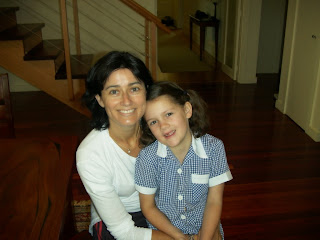Change is a constant. It is around us, inside
us and everywhere we look.
In the time you take to read this
sentence, 50,000 of your body cells will have died and been replaced, a necessary
change, but out of your control. However, many constructive changes are within
our control, and it is these that we
must take responsibility for and act upon.
Even though we are subject to
constant change – in mind and body - for some reason many people become anxious
at the mention of “change.” The majority of adults associate “change” with negative
connotations; a change in the workplace, change in jobs, pay, interest rates,
and the overall cost of living. Perhaps this is because they have become entrenched
in their ways, or comfortable in, or at least accepting of, their environment.
It is for this reason that student led change
vital for society.
 |
| Young adults still hold small elements of their childhood selves; they tackle the world with no fear, nothing is impossible to them. |
Students are more open to change. They act on what they deem important, being unfazed
by the unknown. Students are optimistic leaders, they “demonstrate a healthy
and favorable outlook, fostering hope, and set a positive tone for the future”
(Shankman, Allen & Haber-Curren 2015). Young people are adventurers, they take risks
and they are determined to lead change where possible.
“Seek the wisdom of the ages, but look at the world through the eyes of a child.” - Ron Wild
As Christine
Nixon put it, we are “all global citizens, with global challenges” (2015, pers.
Comm 28 April). Whether we are personally affected by them or not, global
challenges surround us, and we must work to amend them. Positive change is required.
This does not mean we must expect to address the
major challenges the world faces; ending poverty, stopping wars or finding a
cure for cancer. Solving these problems
will take time and requires the efforts of more than just one student body. It is important to be realistic in setting our
goals and considering our actions. We
need to look at the changes we can make that will build to something. The small changes we make individually will overall
have the greatest impact. As Mother
Teresa said:
“I alone cannot change the world, but I can cast a stone across the waters to create many ripples.”
 |
| Playing Basketball. |
Our world is filled with conflicting
existence. It is for this reason that I embarked on a trip to India and
Northern Nepal with my fellow Sacre Coeur students to try and create a difference,
even if no more than bringing a sense of worth and hope to families who were affected
by poverty. We were a group students “going beyond
temporary gains in achievement scores to create lasting, meaningful improvements”
(Hargreaves & Fink 2004). We were a group of students leading change.
 |
| Hand- clapping games. |
Despite poverty being a global challenge, we set the realistic goal to initiate change within a small community. Volunteering in a Tibetan Refugee, we endeavored to generate feelings of happiness in the locals. Whether it was through playing hand-clapping games, basketball, having spontaneous sing-a-longs, or even cleaning the school and work sheds, these small actions increased the chances of a smile appearing on the locals’ faces.
A smile may seem insignificant and irrelevant, in relation to the global issue of poverty, however we strongly believe that it made a difference in their lives. It fostered hope and confidence in the Refugees.
 |
| The power of a smile. |
We knew we
couldn't change the world and we understood we couldn't remove the poverty in
their lives, but most importantly, we saw an opportunity to help others. We
seized the chance to make a difference in the world, even if it was small. We were not scared to create change; we were
willing to enter into the unknown, because it was important to us.
Never doubt that a small group of thoughtful committed citizens can change the world; indeed, it's the only thing that ever has. - Margaret Mead
Currently the
students of today endeavor to change the world. They do not fear change, but
the question is will this mentality sustain as they grow up, or will they too,
succumb to the notion of “change” with having negative connotations? Is there
an unidentified cycle that must be broken, so that student led change is not
temporary?
References
Bebi, A & Beba B 2013, Seek
the wisdom of the ages, but look at the world through the eyes of a child - Ron
Wild, PinInterest, online image, viewed
26 May 2015, https://www.pinterest.com/pin/292804413246501150/
Heifetz,
R, Grashow, A & Linsky, M 2009, Leadership in a (permanent) crisis, Harvard
Business Review, Massachusetts.
Heifetz,
R, Grashow, A & Linsky, M 2009, The Practice of Adaptive Leadership, Harvard
Business Review, Massachusetts.
Hargreaves, A & Fink, D 2004. “The Seven Principles of Sustainable
Leadership”. Educational Leadership, Volume 61, Number 7.
Shankman, M, Allen, S & Haber-Curran 2015, emotionally
intelligent leadership, Jossey-Bass, San Francisco.
*all other images are my own*








